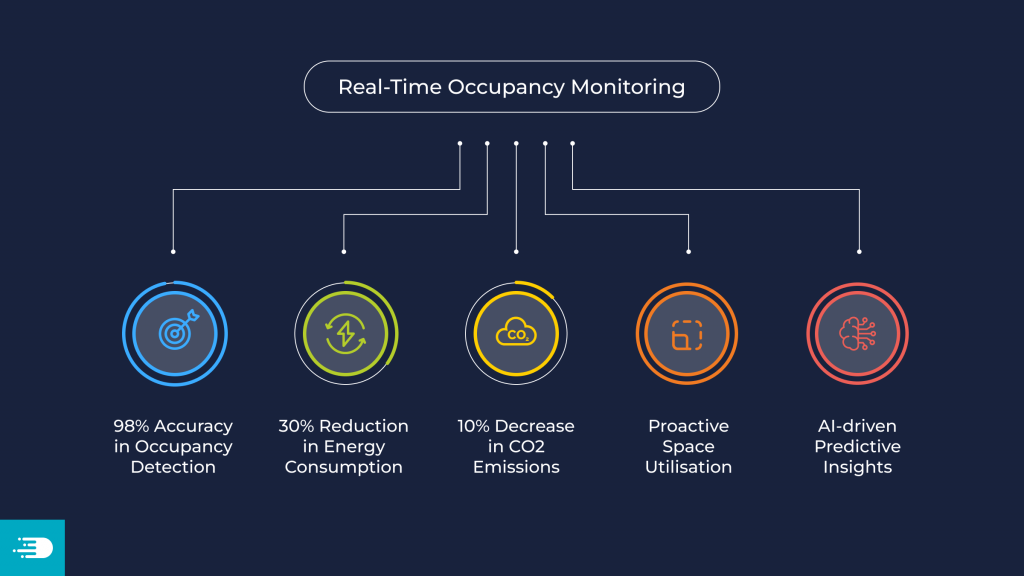The Facilities Management Journal recently cast a spotlight on pressing challenges faced by the UK, with the Climate Change Committee‘s 2023 report emphasising the nation’s delay in achieving its net zero transition goals by 2050. The primary concerns brought forth are the impending catastrophic overheating of our planet and a dire shortage of skilled personnel in decarbonisation. With 70% of commercial buildings potentially at risk and an urgent need to quadruple the retrofit rate to meet targets, the facilities management sector faces a critical call to action for rapid upskilling and technological innovation.
In this context, we believe that integrating advanced technologies, specifically in occupancy monitoring and building automation, can present a transformative solution.

Harnessing Occupancy Monitoring for Energy Efficiency
A truly efficient retrofit aligns with actual usage. With our advanced occupancy monitoring solutions, we can precisely detect the number of people in space and their activity levels. Leveraging radio and light detection technologies, our system achieves up to 98% accuracy in its readings. This detailed information is crucial for assessing real-time energy requirements, leading to significant energy savings.
Streamlining Operations with Building Automation
The integration of our cutting-edge real-time occupancy monitoring solutions with Building Management Systems (BMS) can significantly curtail energy consumption. In fact, preliminary data suggests reductions of up to 30% are achievable, underscoring the synergy between energy efficiency and advanced automation. Our advanced solutions offer real-time insights into room availability and use patterns, ensuring that space is used judiciously. This not only reduces energy wastage but also supports the burgeoning trend of flexible working environments. Additionally, incorporating indoor air quality monitors, smart building technology, environmental sensors, and humidity sensors can further enhance the efficiency and sustainability of office spaces.
Optimal Space Utilisation for Contemporary Workspaces
One of the unsung facets of retrofitting is the assurance of optimal space utilisation. Our advanced solutions offer real-time insights into room availability and use patterns, ensuring that space is managed effectively. This not only reduces energy wastage but also supports efficient space management strategies.
Promoting Safety, Compliance, and Sustainable Goals
Our commitment goes beyond just energy and space – we prioritise the health and safety of building occupants. Our solutions provide capabilities like real-time social distance monitoring and emergency path detection. Moreover, with the potential to pare down building CO2 emissions by up to 10%, our offerings resonate deeply with the overarching sustainability ambitions of the green skills movement.
Harnessing Predictive Analytics for Forward-Looking Management
For the facilities management sector to truly advance towards a greener horizon, a proactive stance is indispensable. This is where our AI-enabled predictive analytics come into play, offering actionable insights derived from real-time data and occupancy trends. Whether it’s ventilation control or space utilisation, these insights inform proactive, sustainable decisions.
To wrap up, as the UK steels itself to confront its green skills challenge and fervently works towards its 2050 targets, we propose a fusion of upskilling with the latest in technological advancements. It’s a symbiotic union – upskilling the workforce while also equipping our buildings with the most innovative tools available. This, we believe, is the roadmap to a greener, more efficient future.
Reference: https://www.fmj.co.uk/green-skills/

